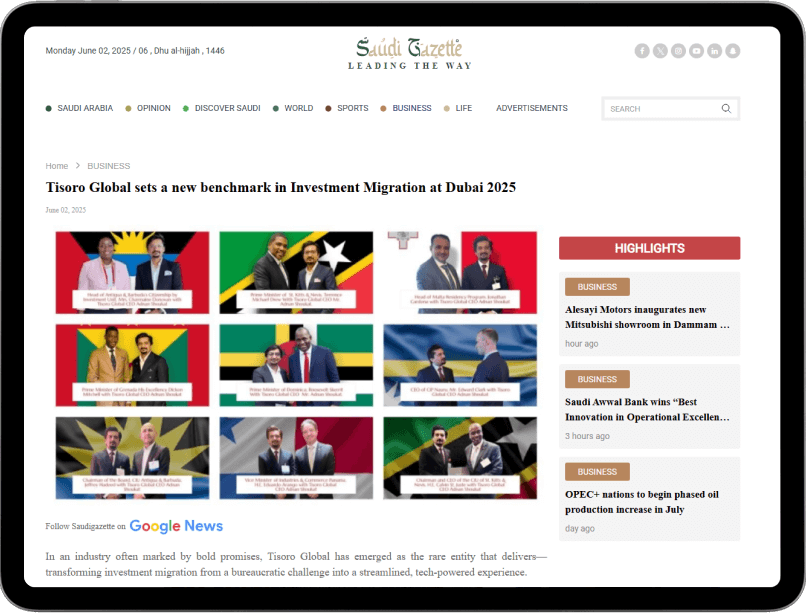Egypt has long been a land of opportunity, rich in history, culture, and economic potential. In recent years, the Egyptian government has made significant strides to attract foreign investment, particularly through its Citizenship by Investment Program. This initiative not only offers investors a pathway to Egyptian citizenship but also emphasizes the importance of the real estate market in enhancing the program’s appeal. The connection between real estate and citizenship is profound, as it intertwines the growth of the housing sector with the broader objectives of economic development and international relations. This article explores why Egypt’s real estate market is key to its Citizenship by Investment Program, examining the various factors that contribute to this dynamic.
One of the most compelling reasons for the significance of the real estate market in Egypt's Citizenship by Investment Program is the country's rapid urbanization and population growth. With a population exceeding 100 million and an increasing trend of urban migration, there is an urgent need for housing. The Egyptian government recognizes that robust real estate development is essential to accommodate this population surge while ensuring a sustainable and thriving urban environment. By investing in real estate, foreign investors can contribute to solving the housing crisis while simultaneously benefiting from the potential appreciation of their investments. This symbiotic relationship between population growth and real estate investment underscores the importance of the housing sector in Egypt's broader economic framework.
Moreover, Egypt’s rich cultural heritage and strategic geographical location enhance the appeal of its real estate market. The country is home to some of the world’s most iconic landmarks, including the Pyramids of Giza and the Nile River, attracting millions of tourists each year. This influx of visitors has spurred demand for real estate, particularly in areas close to these historical sites. Investors recognize that properties in prime locations not only hold intrinsic value but also serve as lucrative rental opportunities, particularly for those looking to capitalize on Egypt’s tourism sector. By integrating real estate investment with citizenship, Egypt's program enables foreign investors to secure a tangible asset while contributing to the preservation and promotion of its cultural heritage.
The government’s commitment to developing new urban communities further bolsters the real estate market's role in the Citizenship by Investment Program. Initiatives aimed at building modern cities, expanding infrastructure, and improving public services are transforming the Egyptian landscape. Projects such as the New Administrative Capital, which aims to alleviate congestion in Cairo, showcase the government’s dedication to creating a more organized and efficient urban environment. These developments not only enhance the quality of life for residents but also create opportunities for foreign investors to engage in property development and investment. By participate in these initiatives, investors can align themselves with Egypt’s vision for sustainable urban growth while securing their citizenship through meaningful contributions to the country. Egypt’s real estate market is also characterized by its diverse range of offerings, appealing to a broad spectrum of investors. From luxury villas and beachfront properties along the Red Sea to affordable housing projects catering to the middle class, the market caters to various tastes and budgets. This diversity is particularly attractive to foreign investors, as it allows them to select properties that align with their investment goals and lifestyle preferences. The availability of different property types not only supports the Citizenship by Investment Program but also encourages a more inclusive economic environment where investors from various backgrounds can participate and benefit.
The legal framework surrounding real estate transactions in Egypt has undergone significant reforms, enhancing transparency and reducing bureaucratic hurdles. The government has made concerted efforts to streamline the process of property acquisition, making it easier for foreign investors to navigate the system. These reforms are essential for building investor confidence, as they demonstrate the government’s commitment to fostering a favorable investment climate. The establishment of regulatory bodies and the introduction of modern property laws further contribute to a more secure and transparent environment for real estate transactions. As investors feel more assured in their dealings, they are more likely to engage with the Citizenship by Investment Program, recognizing the benefits of investing in Egypt’s thriving real estate market.
Furthermore, the potential for high returns on real estate investments in Egypt cannot be overstated. With a growing economy and an increasing number of foreign tourists and expatriates, the demand for rental properties continues to rise. Investors who purchase real estate in Egypt not only secure citizenship but also position themselves for financial gains through rental income and property appreciation. This potential for returns serves as a compelling incentive for individuals looking to invest their capital wisely. The Citizenship by Investment Program, therefore, becomes a dual benefit—granting investors access to Egyptian citizenship while providing a pathway for financial growth and security.
The political stability and economic reforms in Egypt have also played a significant role in boosting the attractiveness of the real estate market. In recent years, the government has implemented policies aimed at stabilizing the economy and attracting foreign investment. These reforms have created a more conducive environment for business and investment, reassuring foreign investors about the safety and viability of their investments. As the economy continues to stabilize, the real estate sector is poised for growth, making it an ideal landscape for citizenship investment. Investors are more likely to feel confident in their decision to participate in the Citizenship by Investment Program when they perceive a stable and improving economic environment.
Networking opportunities within Egypt’s real estate sector further enhance the appeal of the Citizenship by Investment Program. By investing in real estate, foreign investors have the chance to connect with local developers, business leaders, and government officials, fostering relationships that can lead to further investment opportunities. These connections can prove invaluable, particularly for those looking to expand their business interests in Egypt. The Citizenship by Investment Program, therefore, not only provides a path to citizenship but also opens doors to a network of influential contacts that can support investors in their ventures.
As Egypt continues to develop and modernize its infrastructure, the potential for real estate investments will only increase. The government is committed to enhancing transportation networks, utilities, and public services, creating an environment that supports economic growth and attracts further investment. This commitment to modernization is crucial for the long-term sustainability of the real estate market, ensuring that properties maintain their value and appeal. For investors seeking to secure their citizenship through real estate, participate in this growth story offers the chance to be part of a transformative journey that benefits both the investor and the country.
In conclusion, Egypt’s real estate market is undeniably key to its Citizenship by Investment Program. The interplay between population growth, cultural heritage, economic reforms, and investment opportunities creates a compelling narrative for foreign investors. By engaging with the real estate sector, investors not only gain access to Egyptian citizenship but also contribute to the country’s development and prosperity. The combination of potential returns, legal reforms, and networking opportunities further enhances the attractiveness of this program. As Egypt continues to evolve as a hub for investment and tourism, the real estate market will remain central to its Citizenship by Investment Program, paving the way for a brighter future for both investors and the nation.






































